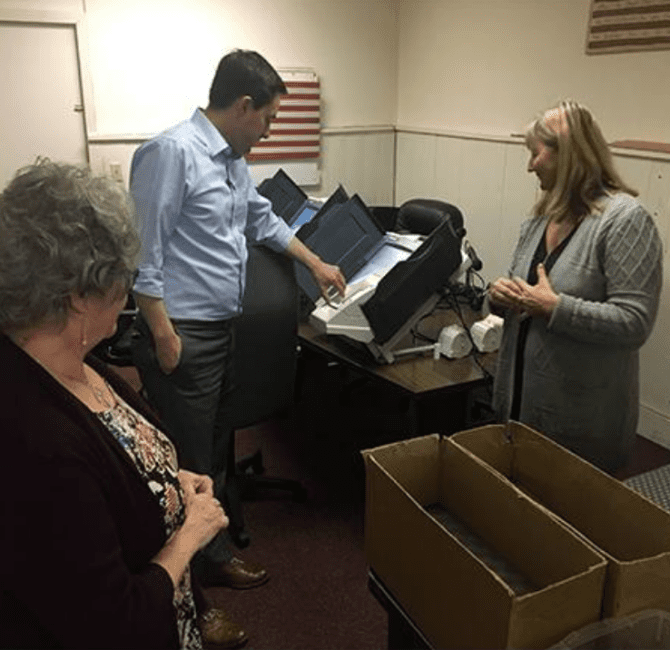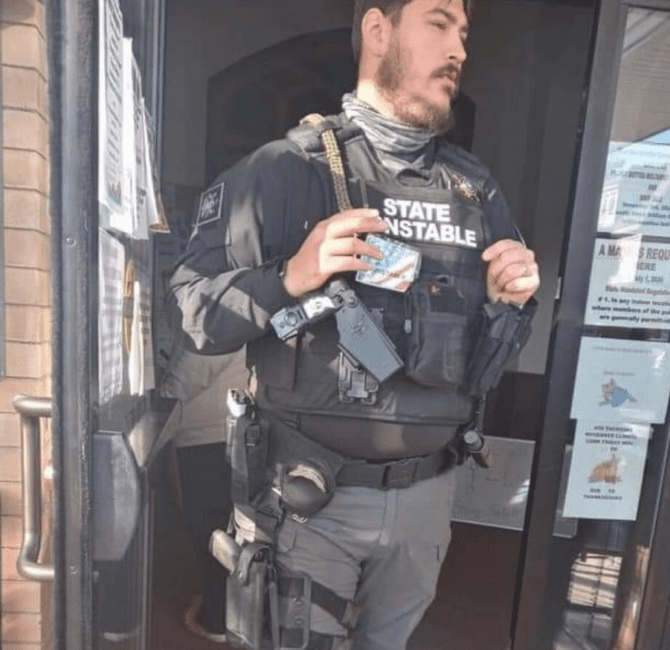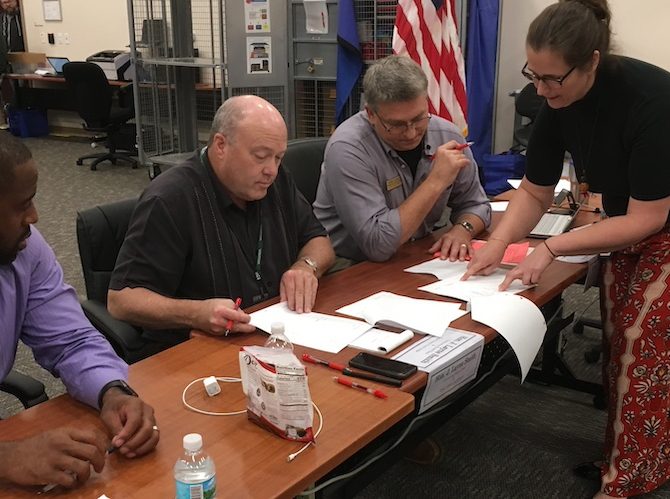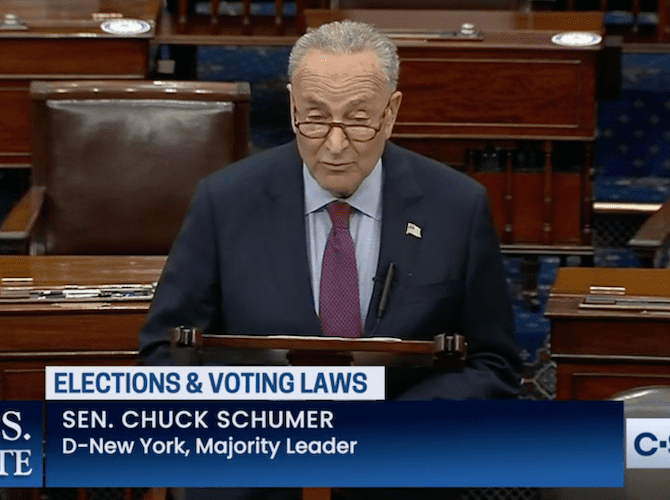Defend Democracy in Your 2020 Coverage, Bipartisan Experts Urge Media
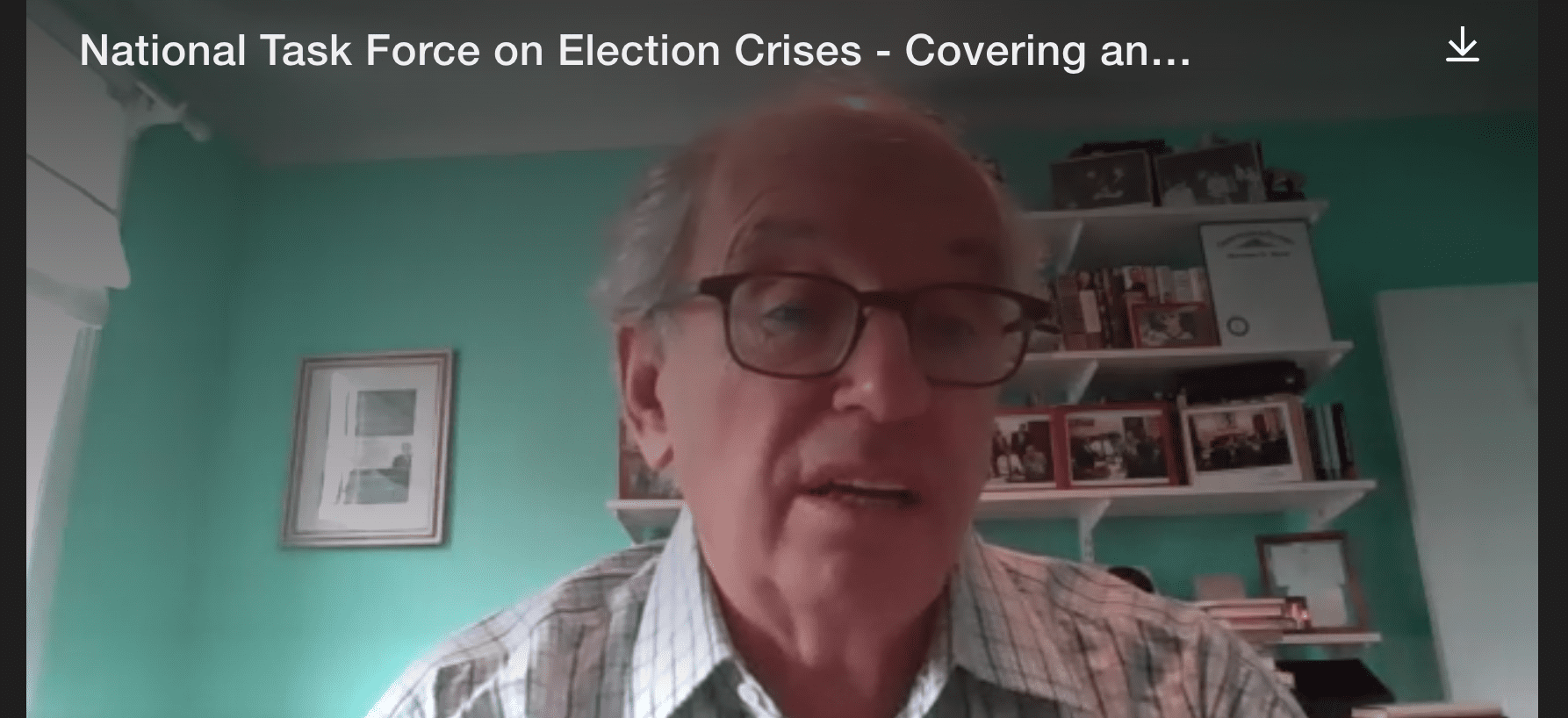
(Vimeo screenshot / electiontaskforce.org)
American media must rethink how they will cover a disinformation-drenched run up to Election Day, an often-imperfect voting process, and a volatile aftermath until a legitimate presidential winner emerges, a bipartisan task force of national election and security experts advised in a September 17 tele-conference.
“Newsrooms need to prepare for a political environment in which mainstream political figures, most notably the president of the United States, are going to promote false and unsupported claims about the election,” said Brendan Nyhan, a Dartmouth College professor and co-founder of Bright Line Watch, which monitors threats to American democracy.
But the speakers went beyond urging newsrooms to wait until there was clear evidence of who won the presidency before racing to make that announcement—which typifies election night coverage but has no legal weight, and urging journalists not to be manipulated by premature declarations of victory by President Trump or other top White House officials.
Instead, the media summit convened by the National Task Force on Election Crises, composed of “experts in election law, election administration, national security, cybersecurity, voting rights, civil rights, technology, media, public health, and emergency response,” urged journalists to reassess their coverage plans and take on a “mindset” to defend democratic institutions.
“I want to underscore the stakes here,” Nyhan said. “We have already seen a decline in the quality of U.S. democracy… The legitimacy of our elections being challenged, however, would be an even more fundamental step toward democratic erosion.”
Speaker after speaker said that the winner might not be known for several days or, in the worse-case scenarios, weeks. They said that voters needed to be warned that voting on Election Day could be slowed by precautions taken to guard against the pandemic. They noted that not every state begins the laborious process of counting returned mailed-out ballots at the same time, which also slows the counting process but does not mean that something is wrong.
Going deeper, the speakers said that journalists needed to be careful about how they would fill a likely coverage void between Election Day and whenever definitive results were known. They should emphasize the difference between facts and political opinions, and avoid amplifying misinformation by acting as stenographers of the president’s words, or taking a hateful post seen on social media by several hundred people and broadcasting it to millions of people.
“The reason misinformation spreads in our society is because… we have problems in our society with people willing to believe it,” said Rachel Kleinfeld, a democracy, conflict and governance fellow at the Carnegie Endowment for International Peace. “Focusing less on ‘Who did what?’—because we know that there are many nefarious actors who want to do things that will spread misinformation—and more on ‘Why are we being susceptible to this?’… is a more useful role.”
In short, just as COVID-19 has forced election administrators to rethink how they will hold the 2020 election, the virus and Trump’s ongoing attacks on the voting process should force the media organizations to rethink the fundamentals of how they will cover the election.
“I would issue the following warning,” said Norman Ornstein, a resident scholar at the American Enterprise Institute specializing in politics, elections and Congress. “This is not just about how you cover the elections and take into account that this will be a very different election. This is basically broadcasting the truth, which is not a ‘He said’ [this, versus] ‘He said’ [that] kind of thing anymore.”
“If you simply report what Donald Trump said, or any other politician or figure out there [said], without indicating that it is false or true; if you try to make it something like, ‘Trump says election is a fraud. Biden disagrees,’ you are not doing your job anymore,” Ornstein said. “The whole mindset of journalism has to change now, because we’re in a very different world and the threat is a different one.”
Edward B. Foley, an Ohio State University law professor and expert on post-Election Day disputes, said one example where the press was failing to properly frame the narrative was by referring to vote counting “delays” instead of a deliberate process.
“I still think there’s more work to be done and it’s particularly on this concept of delay,” he said. “Even though the networks and the media are saying, ‘we need to tell you new information about the voting process’ and ‘don’t expect answers on election night,’ they’re still buying into this narrative that it’s a delay. And that is an idea that something is wrong if things are delayed.”
“It’s very important to understand that, from a legal perspective, there is no delay at all,” Foley continued. “The only delay is in the capacity to project [the winner]. So that is a media issue… It has to understand the dynamic relationship between what it does and what the officials do.”
These calls for journalists to raise the bar and defend democratic institutions are notable. But one participant, Ron Fournier, the former Washington bureau chief at the Associated Press, wondered aloud if the American public would heed such coverage in today’s polarized era.
“Who is swayed by objective media anymore?” he asked. “I think this is a ‘We the People’ problem and not just an institutional problem. It’s bigger than the parties. It’s bigger than the media… Does the American electorate want to hear the truth on election night? Or is there going to be half the country that’s going to hear that their person won and the other side lost? And the other [half of the] country is going to hear the opposite? We know that’s how the public is moving now. We’re walking around in our intellectual bubbles and aren’t listening to the truth. We’re listening to our team’s truth.”



